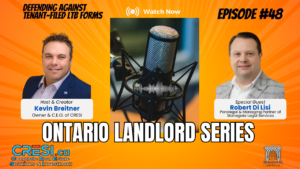Why Invest In Commercial Real Estate?
A residential landlord rents to an individual or a family. There are many rules in place to protect the tenant in this scenario. A commercial landlord is renting to a business. This is where the power shifts to the landlord and the rental game changes. If the business doesn’t pay its rent, then the business doesn’t have the same legal protection as a family in a home. For example, it takes less than a month to evict a commercial tenant. It can take 6-10 months to remove a residential tenant that didn’t pay their rent. Commercial landlords have more control over their investments.
How Does It Work?
This is a great time to be a small business owner. After all, there’s so much opportunity out there—and it’s only going to get better. But if you don’t own a business and rent commercial space, then you don’t think much about commercial real estate. More small businesses need brick and mortar for their customers to walk in and take the service or buy the product. The need for this is only going to grow in the coming years.
Commercial units are in retail plazas, multi-use buildings, and industrial buildings and complexes. The price of commercial units is higher. This means the deposit to buy is higher than for residential property. When you buy residential you only need 20% of the buy amount. With commercial units, the buy amount is 30-40% of the buy price. Lenders will run their numbers and give approval based on the income of the property. The personal income of the investor has nothing to do with it.
Are you looking for a stable investment with consistent returns and less risk? Commercial real estate investing might be right for you. It’s not as common. Investors get involved by taking part in the ownership of income-producing commercial properties. Some investors re-develop or flip retail plazas, industrial complexes, and small apartment buildings. Other investors are starting to venture into new products and conversions as well. These strategies cost more with more time involved.
The C.R.E.S.I. Investments & Development Team is here to make this concept understandable & accessible for the average real estate investor.



